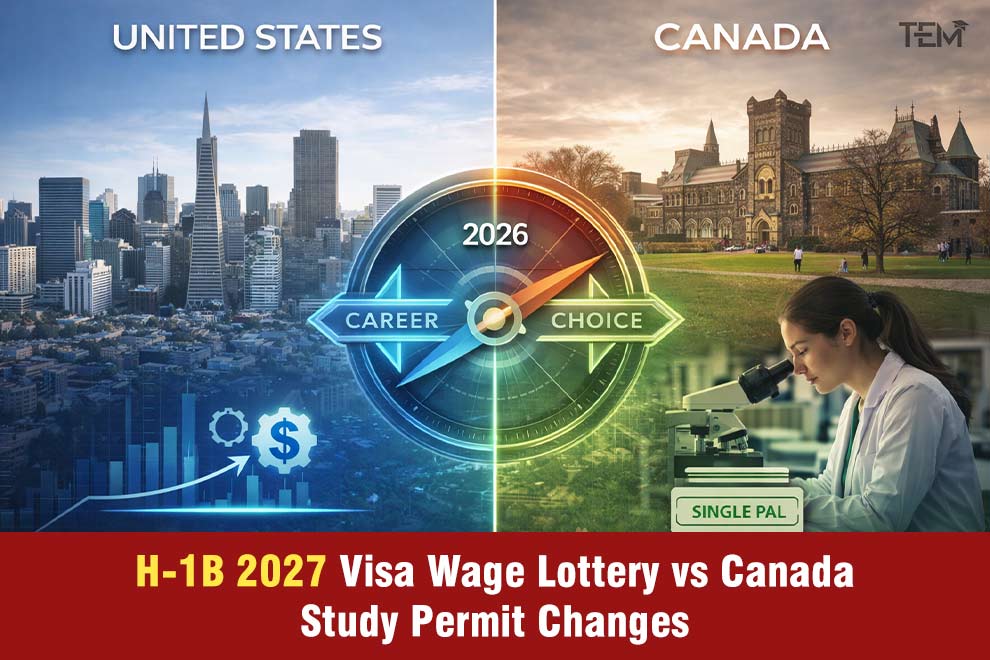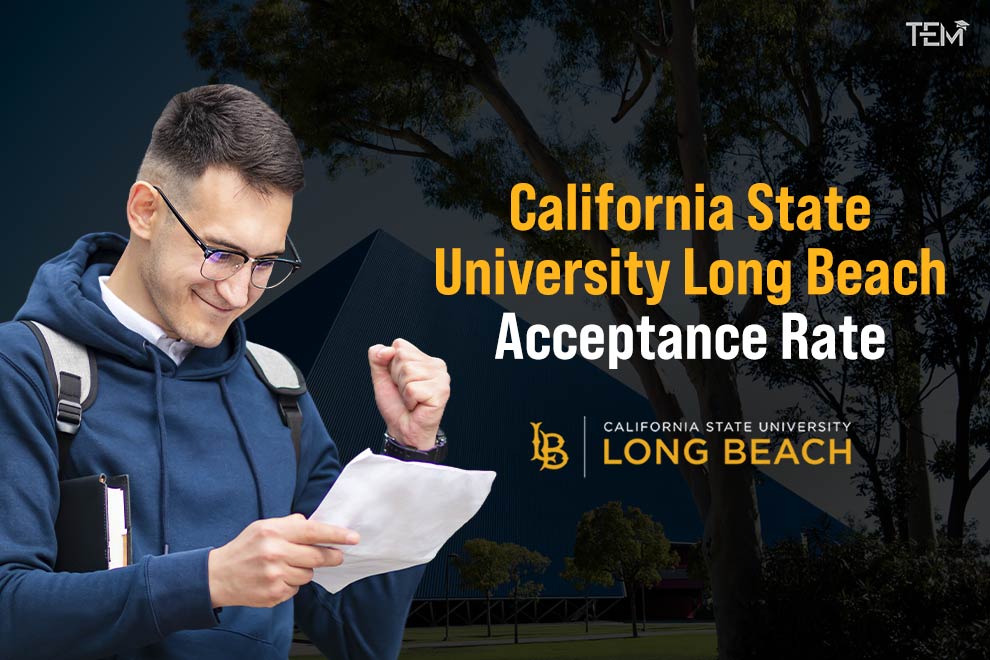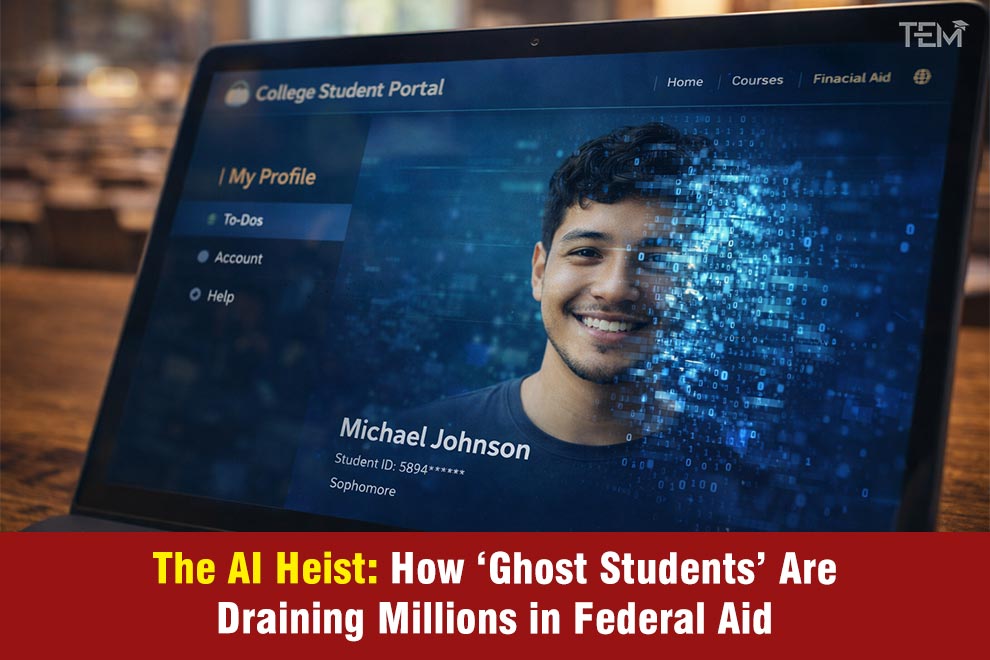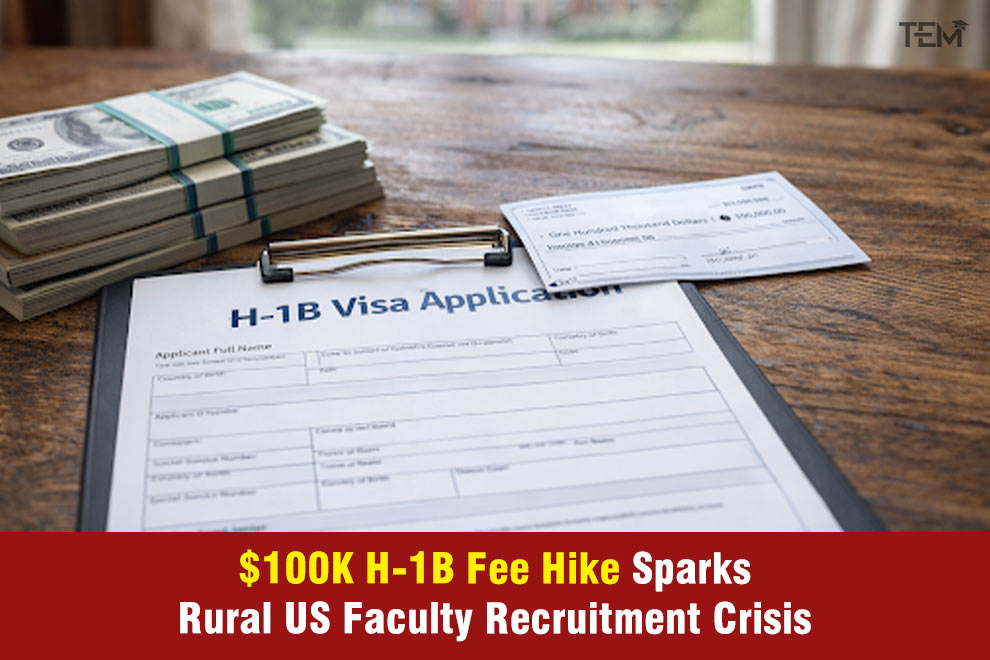The Education Magazine
June 5, 2025
In a shocking turn of events, former U.S. President Donald Trump has issued an executive order freezing all student visas for Harvard University, citing national security concerns and alleged foreign influence, specifically from China. The executive order, signed on June 4, 2025, suspends the issuance of F-1, J-1, and M-1 visas, directly impacting over 7,000 international students and halting $2 billion worth of ongoing research projects.
This move has reignited the long-standing battle of Trump vs. Harvard, which dates back to Trump’s public criticism of elite universities during his presidency and has now escalated into what experts are calling an “educational Cold War.”
What Did the Executive Order Say?
In the order, Trump accused Harvard of being a “woke disaster funded by foreign enemies,” referencing the university’s research partnerships with institutions linked to China. He claimed these ties could pose a threat to U.S. national security — a claim Harvard has firmly denied.
“We will not be silenced by politically motivated attacks on academic freedom,” said Harvard President Alan Garber in a press conference.
What’s at Stake?
The fallout is immediate and massive:
- 7,000+ students from over 100 countries are now in legal limbo
- $800 million in annual tuition from international students at risk
- $2 billion in federal research funding is frozen
- Major projects in AI, climate science, and medicine are paused indefinitely
- The order could set a precedent for other universities with global student bodies
“This could affect international enrollment across the U.S.,” said Julia Finnegan, Senior Analyst at ICEF Monitor.
Why Harvard?
Trump’s rivalry with Harvard isn’t new. In 2020, he publicly mocked the institution for holding online classes during the COVID-19 pandemic. In 2024, he criticized student protests, blaming the university for fueling political unrest. By 2025, the tensions had evolved into a full-blown confrontation.
In April 2025, Trump’s team froze federal research grants to Harvard — a staggering $2 billion, just weeks before this visa ban. Harvard retaliated in May by filing a lawsuit against the federal government, calling the funding freeze “unconstitutional and retaliatory.”
Global Students in Crisis
Harvard’s student body is one of the most internationally diverse in the world, with 25% of its students coming from abroad. The visa ban has left thousands stranded — unable to attend classes, pursue research, or even remain in the U.S.
“I was set to begin my Ph.D. in machine learning. Now I’m packing my bags,” said Akshita Mehra, an Indian student accepted into Harvard’s engineering program.
Harvard’s Response: A Legal War Begins
Harvard has announced that it will challenge the executive order in federal court, citing discrimination, violation of due process, and obstruction of academic freedom.
“We will fight this ban—not just for Harvard, but for every student and institution under threat,” the university said in an official statement.
What Can Students Do?
Experts advise aspiring international students to:
Diversify applications beyond the U.S. — consider Canada, Germany, and the U.K.
Stay updated with embassy alerts and immigration law changes
Apply early and keep backup offers in place
Use platforms like Reddit, Chevening, and DAAD for real-time updates and scholarship options
Harvard’s annual international applications could drop by 15–20%, say admissions analysts
Final Thoughts
This isn’t just a clash between one leader and one university. The Trump vs. Harvard saga is shaking the foundation of American higher education, global mobility, and the lives of thousands of students.
Whether it’s a political strategy or a realignment of U.S. academic policy, one thing is certain — the effects will ripple far beyond the Ivy League.












